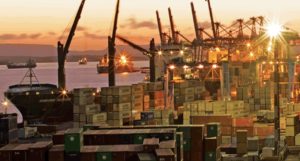
Australia, the United States, India and Japan are in talks about establishing a joint regional infrastructure scheme as an alternative to China’s One Belt One Road concept, writes Reuters.
The unnamed senior U.S. official has been quoted as saying that the plan is still “nascent” but is being seriously discussed adding that it is on the agenda of Australian Prime Minister Malcolm Turnbull’s visit to the United States this week and of his talks with U.S. President Donald Trump.
The source added that the preferred terminology was to call the plan an “alternative” to China’s OBOR initiative, rather than a “rival.” “No one is saying China should not build infrastructure,” the official was quoted as saying. “China might build a port which, on its own is not economically viable. We could make it economically viable by building a road or rail line linking that port.”
When Japanese Chief Cabinet Secretary Yoshihide Suga was asked at a news conference about this particular cooperation, he confirmed that the four countries regularly exchanged views on issues of common interest, although stressing: “It is not the case that this is to counter China’s Belt and Road.”
But whatever it can be called, the trend is definitely there. Thus, last May, India and Japan announced the launch of their joint initiative, the Asia-Africa Growth Corridor (AAGC), to enhance connectivity between Asia and Africa by developing industrial and transport infrastructure in the Asia-Africa region. Unlike OBOR, implying the development of both overland corridor and maritime silk road, AAGC will essentially be a sea route stretching from Japan to Africa, and taking in Indian ports and those of other countries of South-East Asia along the way. Obviously, India and Japan are going to compete in the Indian Ocean with OBOR building ports in friendly nations to expand mutually reinforcing trade.
Besides, as we wrote earlier, India develops the North-South Transport Corridor (NSTC) to connect the country with Iran, the Caucasus, Central Asia and Russia. The Corridor will link the Indian Ocean and Persian Gulf to the Caspian Sea, and the development of the Chabahar Port in Iran is seen as strategic for these plans. The port was already officially inaugurated on 03 December 2017 by Dr. Hassan Rouhani, President of the Islamic Republic of Iran.
At the same time, China has been further developing its concept and in January 2018 announced its ambitions to extend the OBOR initiative to the Arctic forming a “Polar Silk Road”. In its Arctic policy whitepaper Beijing suggests exploration of a potential shipping route across the Arctic, calls for more scientific research and environmental protection for the region and also reveals its ambition to tap resources and take part in the governance.
